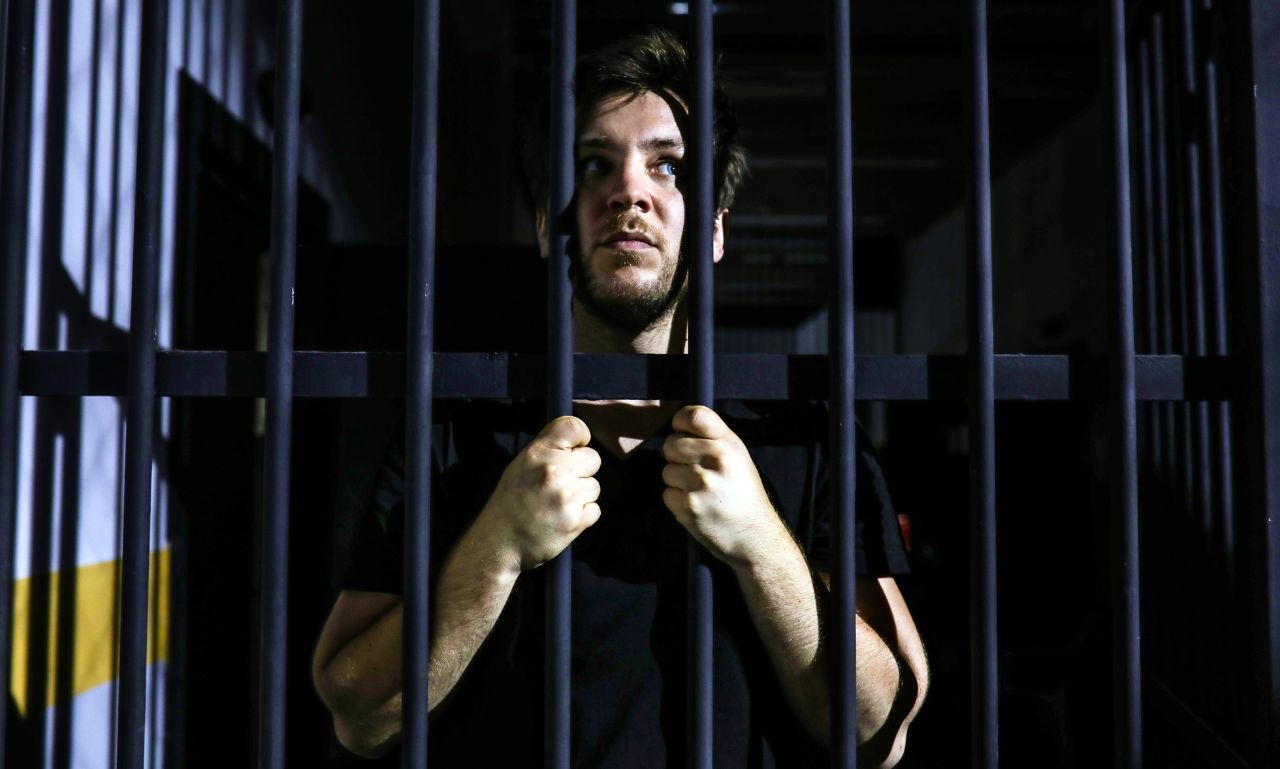Experiencing an arrest results in overwhelming situations for most people. People often get confused about whether arrest and charge mean the same thing. Although these terms are frequently mixed up, they represent separate stages of criminal justice proceedings. A clear understanding of arrest differences from charges becomes essential for all participants in the legal system, including those who need personal help.
This article explains the distinctions between arrest and charge and then outlines the following legal procedures while answering frequently asked questions throughout the process. You will better understand the legal concepts and available steps when you or someone you know faces these situations.
What Is an Arrest?

Law enforcement officers arrest and take suspects into custody when they believe someone has committed a crime. Police make arrests when they have probable cause - reasonable belief that a person committed a crime. In some cases, a judge or magistrate issues an arrest warrant before police take action.It's important to note that an arrest does not imply guilt. It simply means that there is sufficient evidence or suspicion to take a person into custody and start the legal process.
Police make arrests for multiple possible reasons. They do so when they receive information from reports about crimes, surveillance evidence, eyewitness accounts, or confidential informant statements. After police detain someone, they must bring them to a station for booking, where police operators record personal details, fingerprints, and additional information.
The legal process starts after an arrest, even though the experience feels overwhelming to many people. It does not equate to guilt. Following the arrest, the suspect maintains their legal rights to silence their answers and obtain legal representation.
What Is a Charge?
Being charged means that a prosecutor has made formal accusations against an individual, signaling the intent to prosecute the person for a criminal offense. A charge follows an arrest and indicates that the authorities believe there is enough evidence to proceed with a criminal case. Charges can range from minor offenses like traffic violations to serious felonies like robbery or assault.
The charge is the legal statement that the person allegedly committed a crime. Prosecutors base criminal charges on evidence they collect during arrest and investigation. The district attorney or other legal officials review evidence to decide whether to file formal charges.
Charges are generally divided into two main categories: felonies and misdemeanors. Felonies are more serious crimes; a conviction can result in lengthy prison sentences or severe penalties. Misdemeanors are less severe offenses, with penalties typically involving short jail sentences or fines.
A formal charge is different from a conviction. While charges indicate that a crime is alleged, a sentence means that the accused person has been found guilty of committing the crime.
What Is a Conviction?
The legal outcome of a criminal trial or case is referred to as a conviction. When a person faces conviction, the court determines they committed the offense for which they were accused. A conviction emerges from two primary sources: court trials and guilty admissions of responsibility. A sentencing phase begins after a defendant admits guilt or a judge or jury finds them responsible for the alleged offenses.
Convictions have lasting consequences. Different penalties exist after conviction, including imprisonment, fines or probation, and community service requirements. When someone receives a criminal conviction, their record stays with them permanently, impacting their job prospects, travel permissions, and other life aspects.
A fundamental understanding separates arrest from charge from conviction. The initial arrest step follows formal accusations that lead to an accusation status. A person reaches a conviction status when a court renders a final decision that someone defendant did the crime they were accused of breaking the law.
What to Do if You Have Been Arrested or Charged
If you or someone you know faces arrest or criminal charges, you must understand your rights and take steps to protect your future. First and most importantly, remain calm. Though arrest can shock and stress you, don't panic.
1. Remain Silent
After arrest, you have the right to remain silent. You do not need to speak to the police or answer questions without an attorney present. The prosecution can use any statements you make against you in court, so exercise your right to remain silent and wait for legal counsel.
2. Contact a Criminal Defense Attorney
If you've been arrested or charged with a crime, contacting a criminal defense attorney is one of the most critical steps. A skilled attorney can guide you through the legal process, help you understand the charges against you, and work on your defense. Your attorney will represent you in court, negotiate plea deals, and protect your rights.
3. Attend Hearings and Stay Informed
After your arrest, there will likely be multiple hearings, including bail hearings, arraignments, and pre-trial hearings. Make sure to attend all required hearings and stay informed about the status of your case. Missing a hearing can result in more serious consequences, including arrest warrants or forfeiting bail.
What Evidence Does the Police Need to Arrest and Charge Me?
To arrest someone, law enforcement must have "probable cause." Probable cause means that the police have enough facts or circumstances to believe that the person has committed a crime. This could include witness statements, physical evidence, or information from surveillance.
Once a person is arrested, a prosecutor examines the evidence to determine whether it's sufficient to charge them with a crime formally. If enough evidence supports the charge, the prosecutor files formal charges. If not, the case may be dismissed, and the individual will be released.
Felony Case Process

The felony case process includes several stages, starting with an arrest and continuing through trial. The stages in a felony case are as follows:
An Arrest
For felony charges, an arrest typically occurs after an investigation. Law enforcement must have probable cause or a warrant to make the arrest. If you are arrested for a felony, you will be detained, booked, and informed of the charges against you.
A Booking
Booking is the process by which the police record the details of your arrest. This involves taking fingerprints, photographs, and other personal information. You may also be searched for weapons or other illegal items.
The First Appearance Hearing
The first appearance hearing usually takes place within 48 hours of the arrest. At this hearing, the judge will inform you of the charges against you and may set bail. You may be kept in custody until the next stage if you can't afford bail.
The Second Appearance Hearing
The judge may review the evidence against you at the second appearance hearing and discuss how the case will proceed. This is also a chance for you to be represented by an attorney.
Arraignment
At the arraignment, you will formally enter a plea. You can plead guilty, not guilty, or no contest. The judge will set a trial date if the case is going forward.
Pre-Trial or Omnibus Hearings
Pre-trial hearings determine whether there is enough evidence to proceed to trial. If you are represented by an attorney, they may file motions to suppress evidence or argue for a dismissal.
Plea Agreements
The prosecution and defense may sometimes agree to a plea deal. In this case, the defendant pleads guilty to a lesser charge in exchange for a reduced sentence.
Trials
If the case goes to trial, the prosecutor and defense will present evidence, and a judge or jury will determine whether you are guilty or not guilty.
What Is an Indictment?
An indictment is a formal accusation issued by a grand jury, typically in felony cases. It indicates that the grand jury believes enough evidence to charge the defendant with a crime. An indictment is an essential step before the prosecution formally files charges.
Reasons for Detainment or Arrest
Reasonable Suspicion and Detainment
Reasonable suspicion allows law enforcement to stop and question a person. However, this doesn't give the police the authority to arrest someone. Detainment based on reasonable suspicion is typically brief and only for questioning.
Probable Cause and Arrest
Probable cause is the legal standard for an arrest. The police must have sufficient facts or evidence to believe that a crime has been committed. If there is probable cause, the arrest is legally justified.
How Long Can Police Detain You Without Probable Cause?
Police can only detain you for a limited time without probable cause. They must either release you or arrest you within a reasonable timeframe. If they fail to do so, the detainment may be deemed illegal.
Consequences of Detainment and Arrest
Arrest Consequences

An arrest can have significant consequences. It may result in jail time, bail hearings, or criminal charges. In addition, an arrest is often recorded and becomes part of your criminal history.
Impact on Criminal Record
A police arrest creates permanent entries in your criminal history records. A conviction will result in additional information being added to your criminal record. Your arrest record stays permanently recorded even after prosecutors drop all charges against you.
Conclusion
Being arrested shares many elements with being charged, yet they do not equate to one another. The police must take you into custody when they believe you have participated in illegal activities. A crime charge represents legal prosecution declarations stating a committed offense. The criminal justice process requires knowledge of the distinct meanings of these terms. Contacting a qualified criminal defense attorney becomes crucial when you face arrest or receive charges because they will guide you through the legal system.




